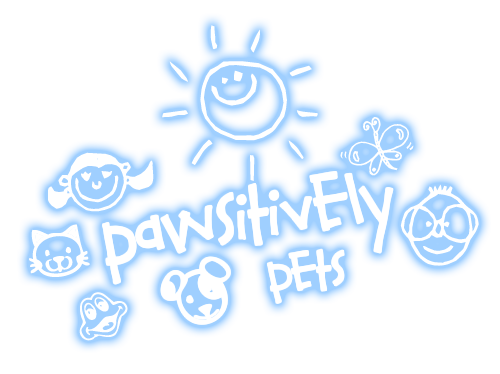One of our missions at Pawsitively Pets is to help people be the best pet owners they can be, and we often find that what the public knows about their pets isn’t the whole story! We aim to change that in a new series of articles that dispel some of the myths and misconceptions that surround our beloved animal friends. This week: Chinchillas!
Not everyone is familiar with these super furry rodents, but people who have touched them are usually sure of one fact: they are the softest animals in the whole world! While softness may be relative, chinchillas do indeed have the highest fur density of any land mammal, with more than 20,000 hairs per square cm. This extremely thick fur has a lot of benefits, the main one being keeping them warm in freezing temperatures, but it also has drawbacks. The density of the hairs means there is little to no air between them, resulting in an anaerobic environment. This means that parasites and other pests cannot live on their skin, as they would suffocate, but it also causes the chinchillas to have to take special care of their fur. They do not do well if they get wet and they must take baths in special dust. Still, it is not true that they must NEVER get wet! Chinchillas are not the Wicked Witch of the West; they will not melt on contact with water. If your pet chinchilla gets wet, they can be blow-dried, gently, on the lowest setting on your hairdryer, then allowed to have a dust bath, then blow-dried again. This will usually deal with the excess moisture, but it is essential to monitor them afterwards for signs of cold or mould. A stressed or sick chinchilla will hide and not move or show rapid, repetitive movements, like racing back and forth. They can also blow their coats and develop bald patches. It is vital to keep your chinchilla dry and allow them regular dust baths!
Due to their soft fur, chinchillas can be seen as cuddly pets, but this is not true. They do make good pets in general, being relatively easy to care for and smart enough to train, but they are better for the experienced pet owner and not at all suited to small children. They do not usually sit on laps, and petting them causes oils to pass from human skin to their fur, requiring them to take a bath. Generally, a chinchilla will make its annoyance known if it feels it is being handled excessively, making barking noises or even nipping. They are very good runners and jumpers and may just flee if they do not like their treatment. On the other hand, they have very fragile bones and can get hurt easily. They are not good at showing outward signs of pain, so it is important to look for the signs of stress detailed above, or any other changes in bowel movements, or eating and sleeping habits.

